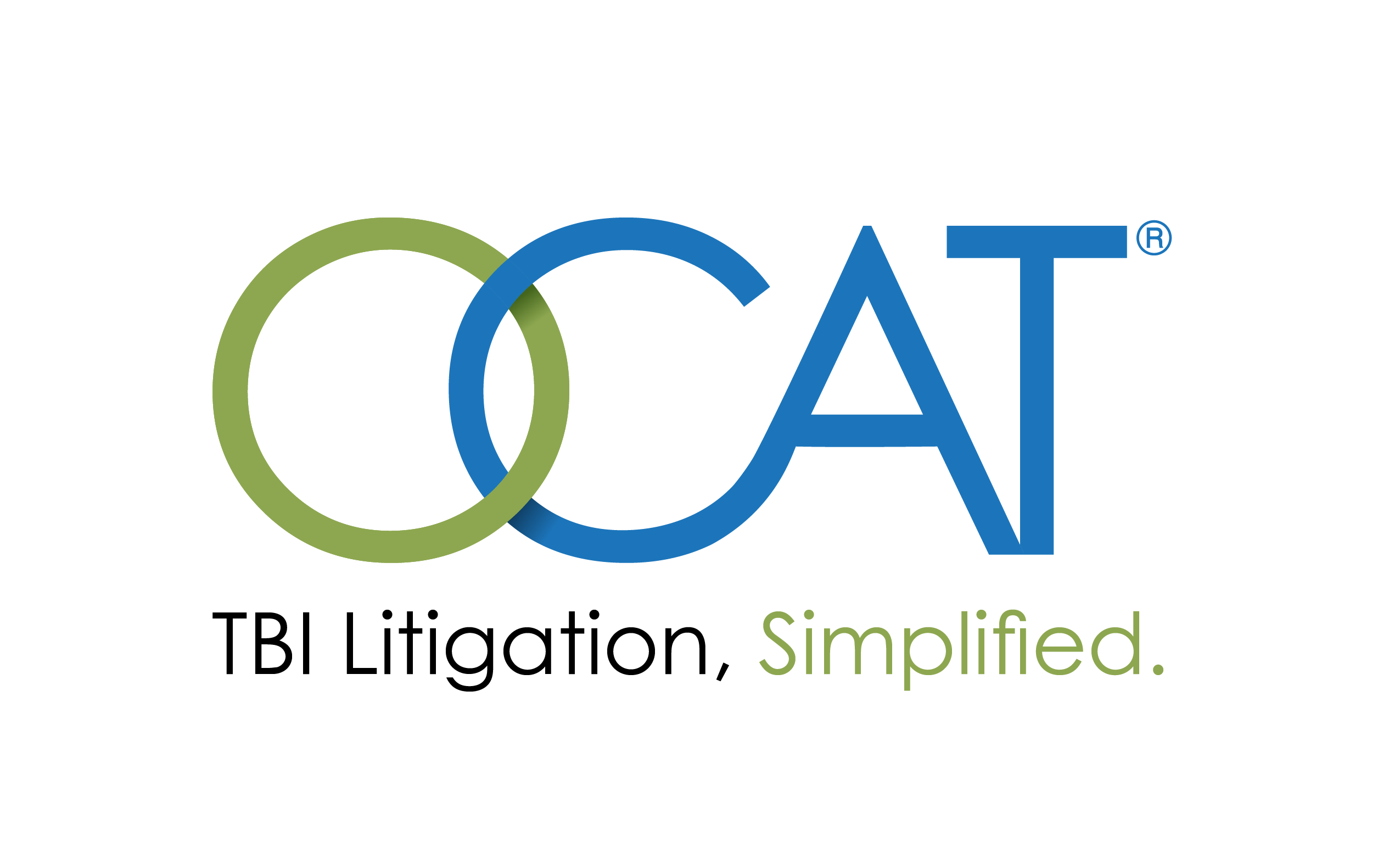Forensic TBI Assessment Services

OCAT® Forensic TBI Assessment
Our forensic assessment plays a crucial role in providing detailed and comprehensive insights into the cognitive and functional implications of a Traumatic Brain Injury (TBI).
Our multimodal assessment battery provides objective measures of brain health, including:
- Functional-Visual Processing
- Executive Functioning
- Processing Speed
- Visual and Verbal Memory
- Attention-Shifting
- Reaction Time
- Motor Speed
- Simple and Complex Attention
- Perception of Emotions
- Perceptions of Functional Deficits Associated with TBI
- Other Trauma-Related symptoms that have a brain basis
We look at functional neuroimaging to see if the areas associated with functional deficits brought out from our testing overlap with the observed dysregulation in brain maps. We use this approach to demonstrate convergent validity between the findings from our assessment and the post-accident diagnosis of TBI.
OCAT®‘s forensic assessments are indispensable in their role of providing a comprehensive, scientifically rigorous, and legally relevant evaluation of functional impairments following a TBI diagnosis. Our assessments offer critical support in understanding the full extent of the injury’s impact, which is essential in both clinical and legal contexts.
Elevating Legal Cases with Forensic TBI Assessment Expertise
Forensic TBI Assessment Report
OCAT®’s forensic assessments are conducted by highly qualified psychophysiologists (PhDs) and follow an initial diagnosis of TBI made by competent medical authority. While these assessments are not a primary diagnostic tool, they serve as confirmatory evaluations, adding depth to TBI diagnoses from a brain health perspective. OCAT®’s assessments adhere to strict scientific and legal standards (Frye & Daubert). Our psychophysiologists utilize scientifically valid and reliable methods, presenting findings in a manner that is understandable and useful in a legal context. This ensures credibility and acceptance of these assessments in legal proceedings.
Relevance in Legal Context
In personal injury lawsuits, our forensic TBI assessments hold significant relevance. They provide critical information about the nature and severity of cognitive and functional deficits associated with the injury and their implications, which are essential for determining damages, compensation, and other legal considerations.
Documentation & Communication
The referral process for OCAT®’s assessments involves collaboration with competent medical authority and the use of ICD-10 codes for TBI diagnoses. This ensures alignment with recognized medical standards and practices, ensuring each assessment’s credibility and acceptance in legal proceedings.

Our forensic assessments serve as confirmatory evaluations following an initial TBI diagnosis by competent medical authority. They play a vital role in detailing the cognitive and functional implications of TBI, making them highly relevant in legal contexts, especially in personal injury cases.
For individuals and legal teams seeking comprehensive, turnkey support for TBI litigation, OCAT® has the solution.


